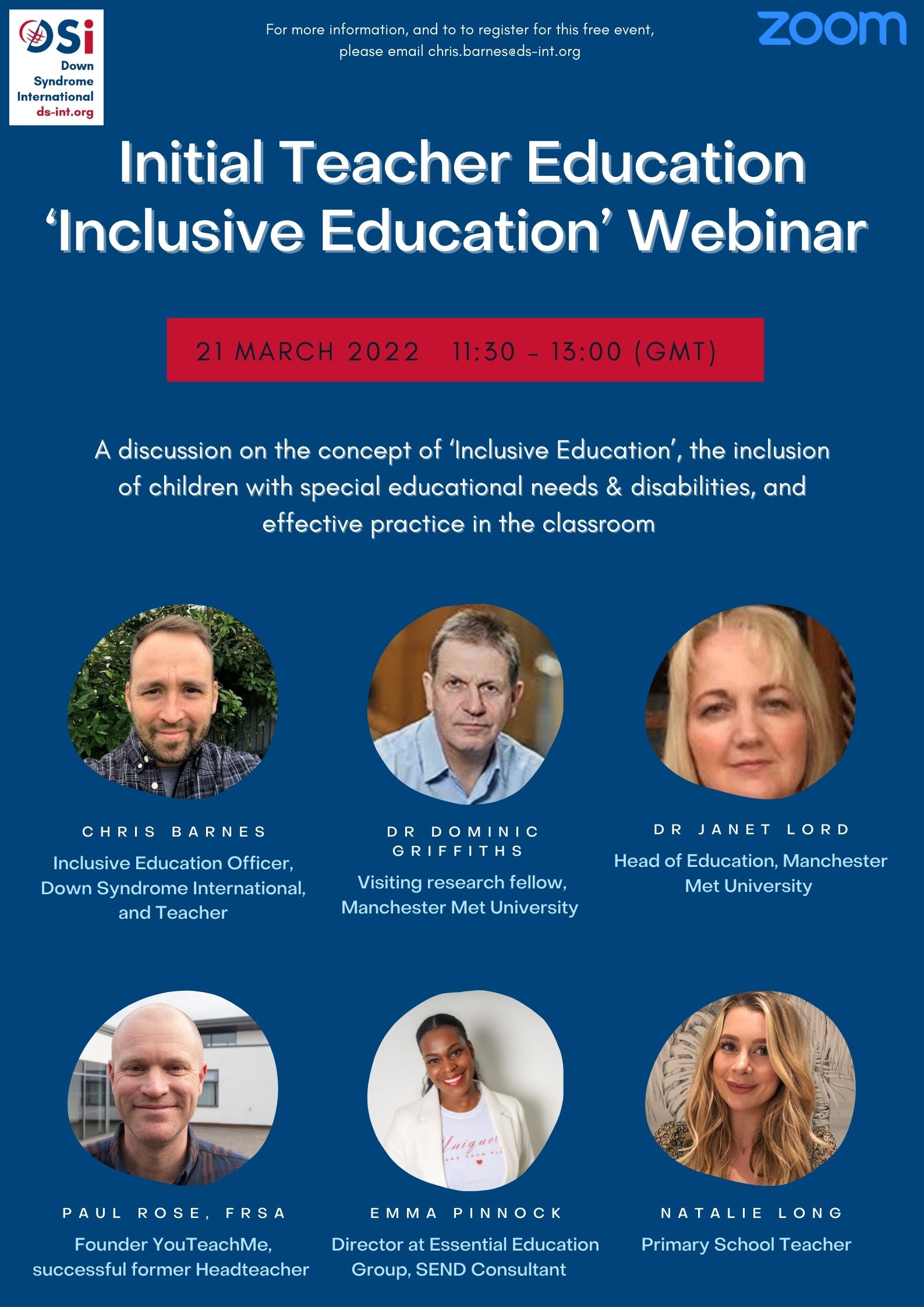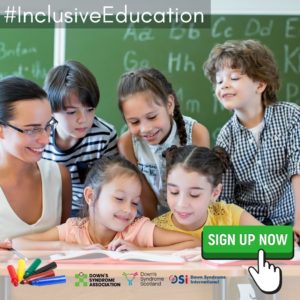Inclusive Education for All #6
23 February 2022 by Chris Barnes, Inclusive Education Officer, Down Syndrome International
During my research for this campaign, I have visited some, quite-frankly, wonderful special needs provisions. Watching the staff care for and teach the children has been nothing short of inspirational. From the comfort of an armchair (or office chair) too many inclusion advocates can belittle and undervalue SEN provision and expertise. I challenge anyone who makes ludicrous statements about SEN provisions being ‘shut down’ to visit some and speak to the children and staff.
The notion of including, educating, and welcoming all learners of the same age into the same classroom spaces is, for most, still merely a dream.
Talk to any inclusion advocate (myself included) and we come un-stuck when it comes to answers, or even progressive thoughts, to this question.
Endless discussions, meetings, debates, and summits go round in circles, regurgitating the same soundbites and factoids about the values of inclusion, the legal and political mandates, and the benefits to all. All of which are perfectly justifiable, agreeable, and morally worthy!
It is a bold viewpoint that supports ‘putting the special kids in different schools’ or ‘having separate/segregated education for the disabled’.
Most people I have spoken to, including many from SEND provisions, agree that – in a perfect world – all children would be educated together.
Naturally and inevitably, discussions on Inclusive Education morph into discussing the ‘why’, not the ‘how’ (see the title of this blog) as the ‘how’ is so hard to define, describe, imagine, and implement. Anyone finding this question easy to answer is definitely not teaching a neuro-diverse cohort including learners with profound and multiple learning disabilities (PMLD) alongside learners without disabilities (or teaching at all!) at the moment.
To anyone who is, and still finds the question answerable, I say with genuine sincerity, ‘Well done! Please share answers & comments below!’

Legislation on inclusion can still be interpreted in different ways: A UK Department for Education spokesperson gave a very convincing argument that the UK has already fulfilled its ‘inclusion’ obligations and that the UK system is built for inclusion (?). But, that’s for a different day…
Side note…the UK is one of only two countries in the world who have ratified the UNCRPD and placed reservations on its commitment to inclusive education (Article 24, Right to Inclusive Education).
Alongside professionals with recent & relevant experience, we will be discussing* the question of ‘how’ inclusion can best be achieved at our inclusive education webinar on World Down Syndrome Day – 21 March 2022. *Note the use of the word discussing, rather than answering!

Drop me an email if you’d like to attend.
Now…to the question ‘why should all peers be educated together?’
I have asked this question of children many times. They tend to give the best answers in my opinion.
- ‘So we can make friends’
- ‘So we can learn about each other’
- ‘To learn about disabilities’
- ‘Otherwise, I wouldn’t know many disabled/non-disabled people’
- ‘Schools should look a bit more like the outside world’
- ‘So our parents can make friends’
- ‘So I’m more ready to work/learn with non-disabled people…’
Some good stuff, I hope you’d agree.
But for the purpose of maintaining a balanced debate, there are frequently asked questions & counterarguments, or course! For example:
- ‘Would you enrol your ‘non-disabled’ daughter/son in a class of 30, within a school of 300 ‘disabled’ learners?’
- ‘How does it feel for a learner with PMLD to watch non-disabled children playing at breaktimes?’
Popular culture is beginning to embrace the inclusion and empowerment of people regardless of gender, race, sexuality, or ability – you only need to turn on the TV to see it happening with presenters, contestants, documentaries, advertising, actors, films, and drama series highlighting the diversity of humans.
One day our education systems will catch up and adopt the same approach.

